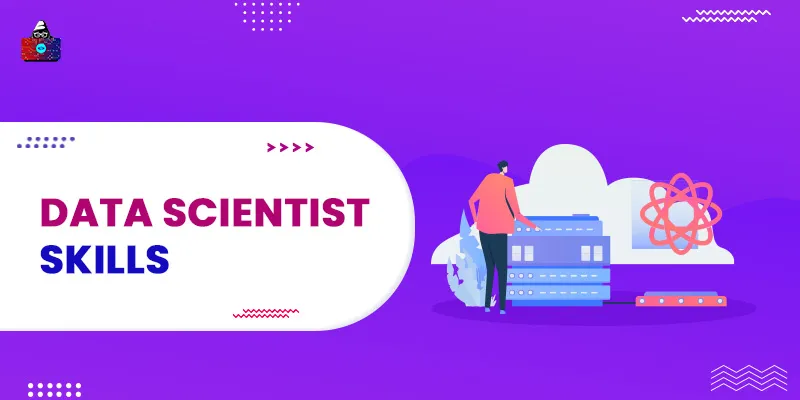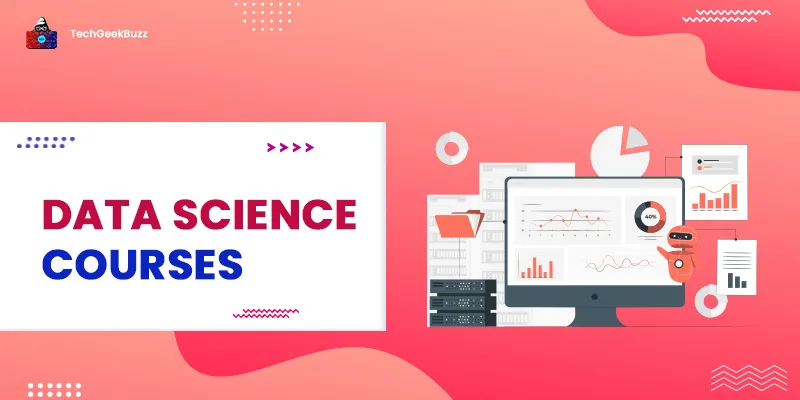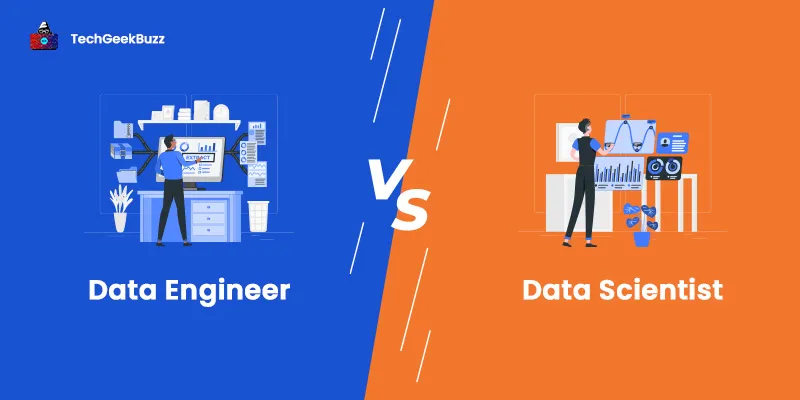Data science is a multidisciplinary domain that utilizes scientific methods, techniques, algorithms, and systems to gain meaningful business insights by analyzing and interpreting big data. Leveraging this big data as an insight-generating tool has resulted in great demand for data scientists across several industries. Here, we will discuss the must-have data scientist skills.
From start-ups to enterprises and government agencies, every organization today relies on data to provide better customer services. Therefore, they hire skilled and experienced data scientists who can process raw data to derive actionable insights that can eventually help to make better business decisions. It is evident that the rate of data generation isn’t going to decrease anytime soon. Thus, the demand for data scientists will undoubtedly increase in the coming years.
In this article, we shall make you familiar with the role of a data scientist and also highlight the crucial responsibilities associated with this job role. Later, we shall walk you through the must-have skills to become a data scientist.
Who is a Data Scientist?
A data scientist is responsible for collecting and analyzing huge amounts of structured and unstructured data and interpreting results to generate valuable insights. Also, these insights help businesses and organizations in making informed decisions. In general, data scientists need to have knowledge of various disciplines, including computer science, information science, mathematics, statistics, data visualization , and communication.
Roles and Responsibilities of a Data Scientist
A data scientist is responsible for:
- Identifying business queries to find an effective solution.
- Gathering data from multiple sources.
- Filtering and processing large data sets.
- Analyzing complex sets of structured and unstructured data.
- Combining and using various statistical algorithms to uncover hidden patterns and trends in data sets.
- Using data visualization tools and techniques to present their findings graphically.
Generally, most organizations and businesses hire data scientists possessing a master’s degree in data science. Individuals aspiring to become data scientists kickstart their careers with a foundation in computer science or mathematics. Later, they proceed with a master’s degree in data science or a related field.
A graduate-level data science program is intended to provide knowledge of predictive analysis , big data, statistical modeling, data visualization, data storytelling, and data mining. Further, a postgraduate-level program enables individuals to learn about processing and analyzing data and extracting meaningful insights from it.
Top 10 Data Scientist Skills
Data scientists require two different types of skills, namely technical and interpersonal. Let us see each type of skill in detail below:
Technical Skills
1. Python Programming
Python is a general-purpose programming language and is extensively used by data scientists for various data science applications . It encompasses a wide range of libraries, making the development of data science applications easier. Some popular Python libraries for data science are Pandas, NumPy, Matplotlib, and SciPy .
Also, it has an easy-to-learn syntax consisting of simple English keywords, making it easier for people from a non-technical background to understand it easily. It is a unified language that can manage everything from data mining to building a website.
2. R Programming
Another programming language essential for data scientists is R. It is both a programming language and an environment for statistical computing and graphics. Data miners and statisticians use the R language to perform data analysis and build statistical software.
Additionally, R has multiple libraries that allow developers to perform various statistical and graphical techniques, such as classical statistical tests, linear and non-linear modeling, clustering, classification, and spatial and time-series analysis. Also, R allows us to extend its capabilities with user-created packages.
3. Machine Learning and AI
Various machine learning algorithms , like classification, regression, and clustering, help to analyze large data sets and automate repetitive tasks, such as data cleaning, by removing redundancies. Machine learning automates the data analysis process and makes predictions in real-time without any human intervention.
Moreover, data scientists are also intended to possess in-depth knowledge of advanced machine learning concepts, such as recommendation engines, outlier detection, and natural language processing (NLP).
4. Hadoop
Apache Hadoop is one of the most popular big data processing frameworks. It is a framework that stores and processes gigabytes to petabytes of data using the MapReduce programming model. It processes and analyzes vast volumes of data parallelly by combining multiple computers to form a cluster. Data scientists use Apache Hadoop when the amount of data they collect exceeds a system’s memory or when they need to send data to different servers.
5. SQL Databases
Data scientists use SQL databases to store structured data in the form of tables. They use the Structured Query Language (SQL) to create, manipulate, and query the relational databases. Additionally, two popular big data frameworks , Apache Spark and Hadoop, provide an extension for querying using SQL commands . Therefore, data scientists need to possess hands-on experience working with SQL and relational databases.
6. Data Visualization
Visualization involves the pictorial representation of data using various visual elements, such as charts, bar charts, maps, pie charts, infographics, and so on. Data scientists use data visualization to graphically represent key findings, trends, and patterns extracted from large data sets. Such a graphical representation helps businesses understand data patterns and trends better.
Some popular data visualization tools that data scientists can leverage are Power BI, Tableau, Google Charts, Zoho Analytics, and Infogram.
7. Statistics and Mathematics
Statistics is yet another crucial skill that a data scientist should possess in order to collect, analyze, and interpret data. They must hold a sound understanding of various statistical concepts, such as mean, median, standard deviation, variance, percentiles and outliers, cumulative distribution function (CDF), probability theory, Bayes theorem, and so on.
Moreover, data scientists should have in-depth knowledge of mathematical concepts like linear algebra and calculus, as they form the backbone of various machine learning algorithms.
Interpersonal Skills
Along with the technical abilities described above, a data scientist must also have interpersonal skills, namely communication, business acumen, and storytelling.
1. Communication
Communication is the fundamental interpersonal skill required in every job role. Organizations usually look for data scientists who can communicate technical business insights to non-technical teams, like marketing and sales teams, without using the data science jargon. Moreover, as a data scientist, it is your responsibility to arm your organization with understandable insights or findings, helping it to make more informed decisions.
2. Storytelling
Storytelling is the most vital aspect of the data analysis process. It is a method of communicating key data findings to target audiences by creating an easily understandable story. Data scientists need to develop good data storytelling skills so that they can communicate analytical solutions clearly.
3. Business Acumen
Data scientists require business acumen to use the data effectively so that it benefits their employers or organizations. Also, they are responsible for finding cost-effective and easy-to-implement solutions for business problems that comply with business goals and objectives.
As a data scientist, it is important for you to have a solid understanding of the industry you are working in. You should also be aware of the business issues that your company is attempting to solve. After understanding all business problems, you must be able to determine the problems that matter the most or affect your organization and identify solutions for them by leveraging data.
Conclusion
Data scientist is quite an interesting and exciting job role as you get to learn a lot of skills. Also, it is one of the most demanding job roles in the 21st century because companies rely on the insights provided by them to make informed business decisions. By having the relevant qualifications and skills mentioned above, you can pursue a career in the field of data science with ease.
People are also reading:




